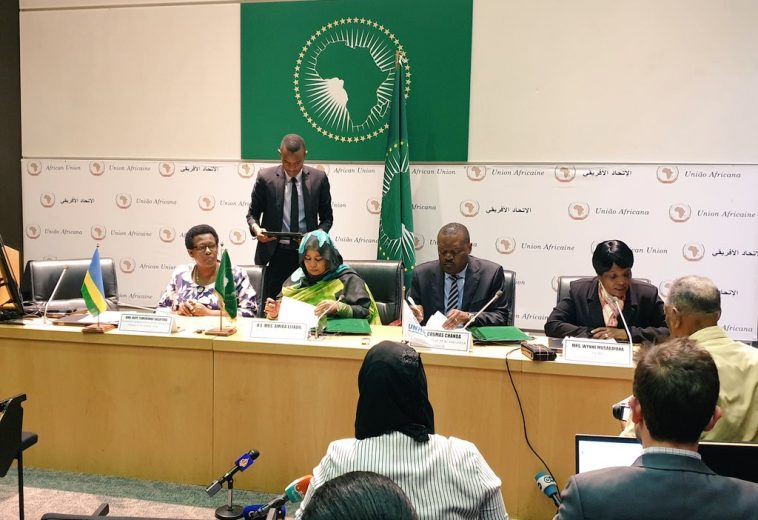As the Kenyan government’s Finance Bill of 2024 sparks controversy with its proposed tax increases, citizens and civil society groups are voicing their discontent, prompting critical questions; can a resolution be reached through dialogue or will resistance mount, leading to a potential crisis that may escalate into defiance or remain a point of contention?.
The Finance Bill of 2024 includes several tax proposals aimed at boosting government revenue. Among the key measures are an increased Value Added Tax (VAT) on essential goods like food items and fuel, higher excise duties on luxury goods such as alcohol, tobacco, and imported cars, and the introduction of a tax on digital services, targeting online businesses and content creators.
Kenya is overhauling the digital tax framework by replacing its Digital Service Tax (DST) with a new Significant Economic Presence (SEP) tax, targeting non-resident companies that generate income in Kenya through online platforms, even without a physical presence. The 30% tax rate is a significant hike from the DST’s 1.5% on total transaction value. The SEP’s approach also differs in calculating the taxable amount, assuming 20% of a company’s gross revenue from Kenya is profit.
The move has sparked intense debate, with thousands protesting across the country, resulting in at least one fatality and 200 injuries, according to Amnesty International, as Kenya, an East African economic powerhouse with 54 million people, faces a crisis of stability in a region already plagued by turmoil.
The Minimum Top-Up Tax (MTT) applies to multinational enterprises with a consolidated annual turnover of EUR 750 million or more, ensuring that large corporations contribute a fair share of taxes. The Withholding Tax (WHT) regime has been revised, with supplies to public entities subject to a 5% WHT for non-residents and 3% for residents, while digital content and online services will be taxed at 20% for non-residents and 5% for residents.
Interest from bonds and notes with a maturity of at least three years used for infrastructure funding will be subject to a 5% WHT, and the WHT rate on non-resident income from shipping or air transport where no reciprocal arrangement or treaty exists will increase from 2.5% to 3%. The bill also expands deductible expenses to include contributions to the Social Health Insurance Fund, affordable housing schemes, and post-retirement medical funds, repealing previous reliefs granted for these contributions and potentially simplifying the tax deduction process.
Additionally, an annual motor vehicle tax of 2.5% on the value of the vehicle will be introduced, with exceptions for ambulances and vehicles owned by government bodies and certain exempt persons. The capital gains tax rate for firms certified by the Nairobi International Financial Centre Authority (NIFCA) will be clarified at a reduced rate of 5%, with a lower investment threshold of KES 3 billion over two years. Finally, the scope of services taxed through digital marketplaces will be expanded to include ride-hailing, food delivery, freelance, professional, rental, and task-based services, reflecting the growing digital economy and aiming to capture a wider range of taxable activities.
The citizens are concerned that higher taxes on essential goods will further strain household budgets, making it increasingly difficult for families to afford basic necessities. Small and medium-sized businesses fear that the tax hikes will lead to reduced consumer spending and potentially devastating job losses. Critics argue that the tax increases unfairly burden low- and middle-income earners, as wealthy individuals and corporations are not held to the same tax standards, perpetuating income inequality.
In response to the backlash, the government has defended the Finance Bill, citing the need to generate revenue for development projects and reduce the national debt. The government emphasizes that the additional revenue will be used to fund infrastructure projects, healthcare, and education, which are essential for long-term economic growth. With a rising national debt, the government argues that increased taxes are necessary to service debt obligations and avoid a fiscal crisis. Additionally, the introduction of new taxes on digital services and luxury items is seen as a way to diversify the tax base and ensure more equitable revenue generation.
The Path Forward: Dialogue or Defiance?
As Kenya’s tax crisis deepens, a collaborative effort between the government, business leaders, and civil society is essential to find a solution. Constructive dialogue is needed to address tax measures and their implications, seeking a balance between revenue generation, economic growth, and equity.
The government might revise the Finance Bill to lessen the impact on essential goods and vulnerable populations, and drive revenue through more progressive taxation. Long-term reforms are necessary to tackle systemic issues like corruption and inefficient public spending, ultimately promoting a better business environment and more sustainable growth.
Tax experts and investors should closely track these developments, as the proposed reforms are expected to take effect between July 1, 2024, and January 1, 2025, pending parliamentary approval and presidential assent. These reforms represent a major step towards aligning Kenya’s tax system with international best practices and ensuring a fairer distribution of tax burdens in the rapidly evolving digital economy.
With proposed reforms expected to take effect between July 1, 2024, and January 1, 2025, tax experts and investors should monitor these developments. These reforms represent a major step towards aligning Kenya’s tax system with international best practices and ensuring fairer tax distribution in the economy.


